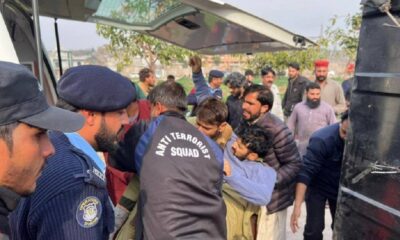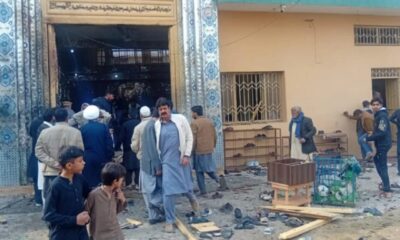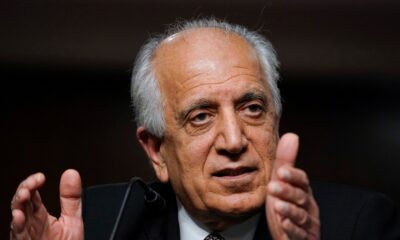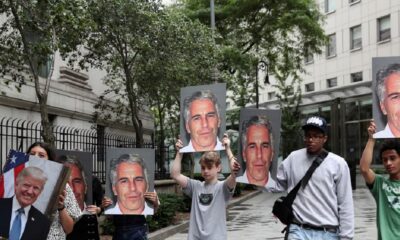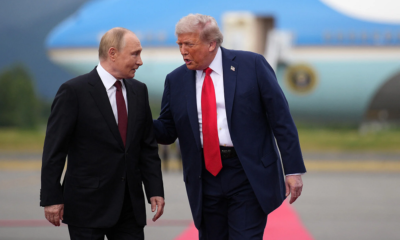Regional
China earthquake death toll rises to 149, two still missing after a week

One of China’s most powerful earthquakes in recent years killed at least 149 people in a remote northwestern region, according to state media, with two people still missing after the magnitude 6.2 temblor hit a week ago, Reuters reported.
The epicentre of the quake straddled the provinces of Gansu and Qinghai in an area where many of China’s Hui people, a tight-knit ethnic minority characterised by its distinctive Muslim identity, are found.
Gansu bore the brunt of the quake’s wrath. More than 200,000 homes were wrecked and 15,000 were on the brink of collapse, Chinese state media reported. Displacing 145,000 people, the powerful tremors killed 117 people in the province as of Dec. 22, with 781 wounded.
In Qinghai west of Gansu, 32 people died and two remained missing as of 11 p.m. (1500 GMT) on Sunday, according to state media.
Local authorities attributed the severity of the damage to the shallowness of the quake. The thrust-type rupture of the earthquake and the relatively soft sedimentary rock in the region also amplified the destructive power of the tremors.
Many of the homes destroyed were built from an earlier era, made of earth-wood or brick-wood structures. Their load-bearing walls were constructed from earth, resulting in their poor defences against any earthquake, local authorities said.
The tragedy has highlighted the urgency of raising the earthquake resistance of rural homes, they added.
Earthquakes are common in provinces on the northeastern boundary of the tectonically active Qinghai-Tibetan plateau, comprising most of Tibet, Qinghai, Gansu, parts of Xinjiang and the rugged highlands in the west of Sichuan, read the report.
Ten years ago in Sichuan, more than 6,700 people were injured and over 160 were killed in a magnitude 6.6 earthquake. In 2010, a destructive magnitude 7.1 quake killed 2,700 people in Yushu, a largely Tibetan area in Qinghai.
Regional
Pakistan sends helicopters, drones to end desert standoff; 58 dead
The BLA, which has urged people of the province to support the movement, said on Tuesday it had killed 280 soldiers during its Operation “Herof”, Black Storm, but gave no evidence.
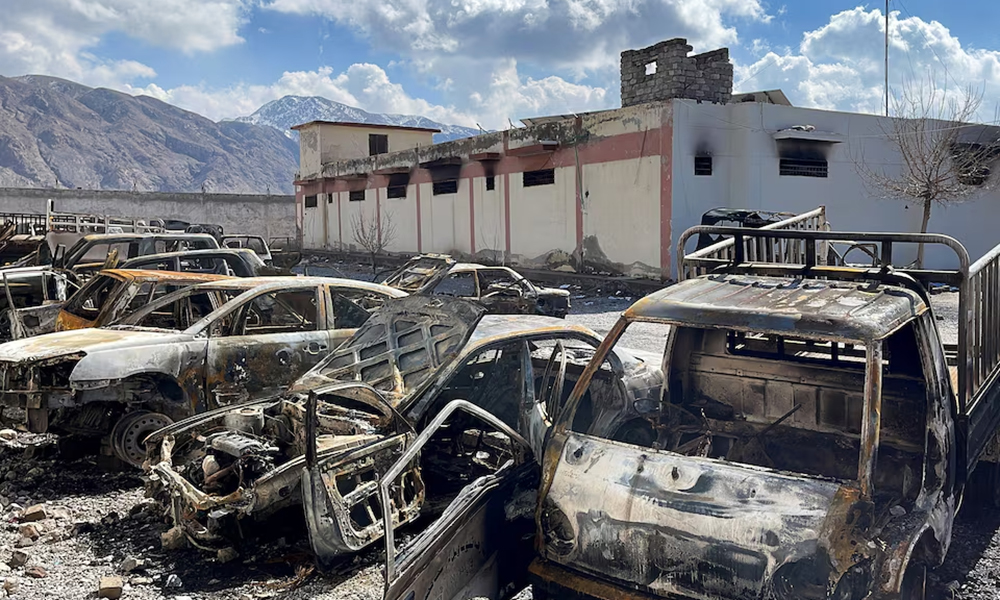
Pakistan’s security forces used drones and helicopters to wrest control of a southwestern town from separatist insurgents after a three-day battle, police said on Wednesday, as the death toll in the weekend’s violence rose to 58, Reuters reported.
Saturday’s wave of coordinated attacks by the separatist Baloch Liberation Army brought Pakistan’s largest province to a near standstill as security forces exchanged fire with insurgents in more than a dozen places, killing 197 militants.
“I thought the roof and walls of my house were going to blow up,” said Robina Ali, a housewife living near the main administrative building in the fortified provincial capital of Quetta, where a powerful morning blast rocked the area.
Fighters of the BLA, the region’s strongest insurgent group, stormed schools, banks, markets and security installations across Balochistan in one of their largest operations ever, killing more than 22 security officials and 36 civilians, read the report.
Police officials gave details of the situation on condition of anonymity as they were not authorised to speak to the media.
In the desert town of Nushki, home to about 50,000, the insurgents seized control of the police station and other security installations, triggering a three-day standoff.
Police said seven officers were killed in the fighting before they regained control of the town late on Monday, while operations against the BLA continue elsewhere in the province.
“More troops were sent to Nushki,” said one security official. “Helicopters and drones were used against the militants.”
Pakistan’s interior ministry did not immediately respond to a Reuters request for comment.
Pakistan’s largest and poorest province, mineral-rich Balochistan borders Iran and Afghanistan and is home to Beijing’s investment in the Gwadar deepwater port and other projects.
It has grappled with a decades-long insurgency led by ethnic Baloch separatists seeking greater autonomy and a larger share of its natural resources.
The BLA, which has urged people of the province to support the movement, said on Tuesday it had killed 280 soldiers during its Operation “Herof”, Black Storm, but gave no evidence.
Security officials said the weekend attacks began at 4 a.m. on Saturday with suicide blasts in Nushki and the fishing port of Pasni and gun and grenade attacks in 11 more places, including Quetta.
The insurgents seized at least six district administration offices during the siege and had advanced at one point to within 1 km (3,300 ft) of the provincial chief minister’s office in Quetta, the police officials said.
Regional
Turkish President Erdogan meets Saudi Crown Prince in Riyadh
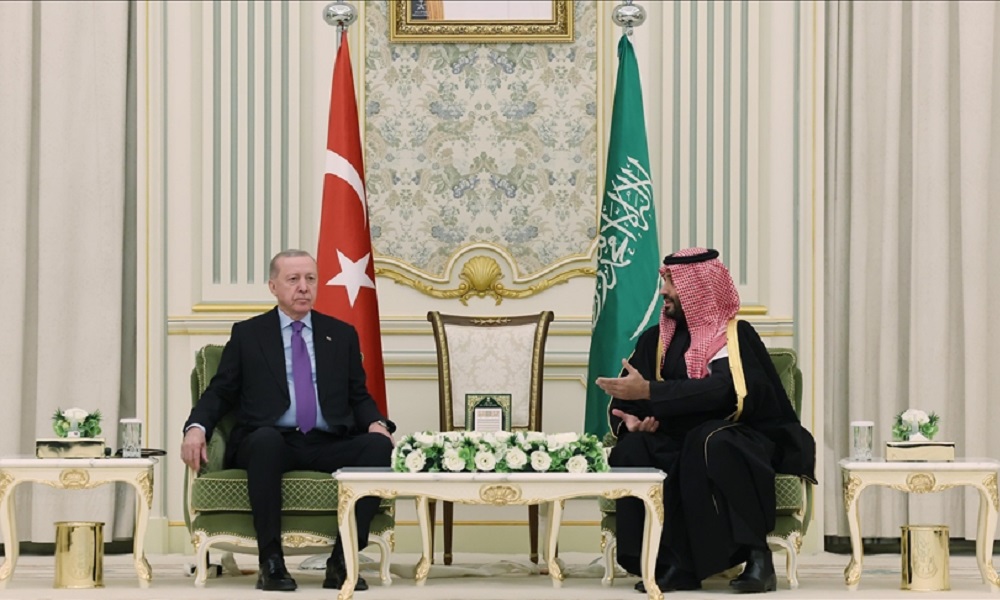
Turkish President Recep Tayyip Erdogan met with Saudi Crown Prince Mohammed bin Salman in Riyadh on Tuesday, marking the first stop of his regional tour, according to Türkiye’s Communications Director Burhanettin Duran.
Erdogan is in Saudi Arabia on an official visit, accompanied by his wife, First Lady Emine Erdogan, as well as Foreign Minister Hakan Fidan, Finance Minister Mehmet Simsek, Defense Minister Yasar Guler and other senior officials.
No further details were released about the closed-door meeting.
Following the talks, bin Salman hosted a closed-door dinner in honor of the Turkish president at the Yemame Palace. Earlier in the day, Erdogan was welcomed by the crown prince during an official reception.
The Riyadh visit is the first leg of Erdogan’s tour of regional countries.
He is scheduled to travel to Cairo on Wednesday at the invitation of Egyptian President Abdel Fattah al-Sisi to co-chair the second meeting of the Türkiye-Egypt High-Level Strategic Cooperation Council.
During his visit to Egypt, Erdogan and Sisi are expected to discuss bilateral relations and exchange views on regional and international developments, with a particular focus on the situation in Palestine, Duran said.
The Turkish president is also set to attend a Türkiye-Egypt Business Forum in Cairo.
Regional
Gas leak caused blast in Iran’s Bandar Abbas, Iranian media say
A video published on social media showed people standing among debris and wrecked cars in front of a damaged building following the explosion.
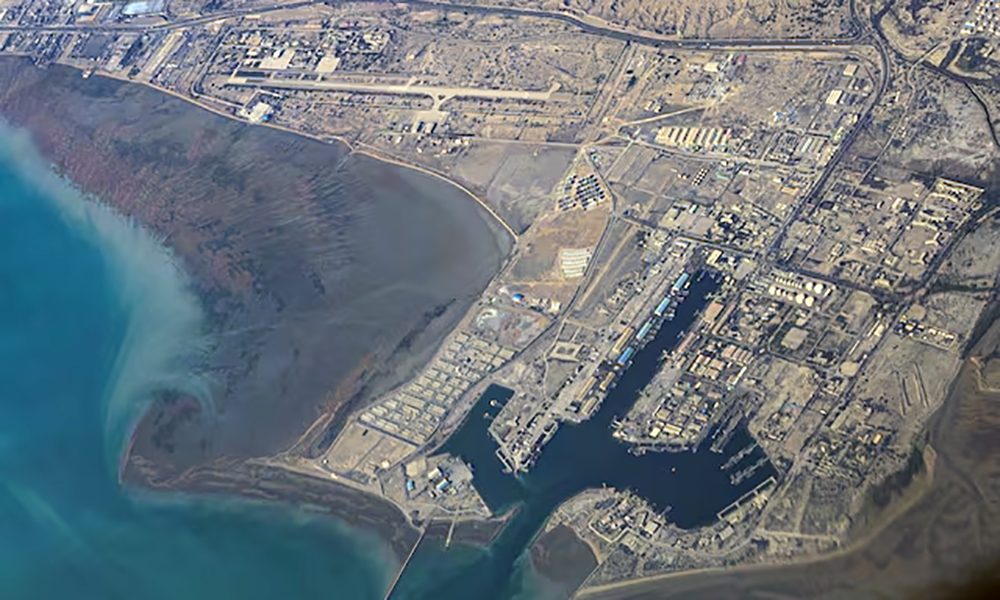
An explosion that hit a building in the southern Iranian port city of Bandar Abbas on Saturday was caused by a gas leak, according to a preliminary assessment, the local head of the fire department said.
Iranian state media reported that at least two people have been killed and 14 injured in the blast, which comes amid heightened tensions between Tehran and Washington over Iran’s crackdown earlier this month on nationwide protests and over the country’s nuclear programme.
“This (gas leak) is the preliminary assessment. My colleagues will give more details in the next few hours,” Mohammad Amin Liaqat, the fire department chief, said in a video published by Iran’s semi-official Mehr news agency.
A video published on social media showed people standing among debris and wrecked cars in front of a damaged building following the explosion.
Reuters was able to verify the location by analysing buildings, trees, and road layout, which matched satellite and file imagery. Reuters could not independently verify the date the video was filmed.
Separately, four people were killed after another gas explosion in the city of Ahvaz near the Iraqi border, according to state-run Tehran Times. No further information was immediately available.
The explosions highlighted the jittery mood prevailing in Iran amid its clerical rulers’ standoff with the Trump administration.
U.S. President Donald Trump said on January 22 an “armada” was heading toward Iran. Multiple sources said on Friday that Trump was weighing options against Iran that include targeted strikes on security forces.
Ali Larijani, a senior Iranian security official, said on X on Saturday that work on a framework for negotiations with the United States was progressing, downplaying what he described as an “atmosphere created by artificial media warfare.”
Trump told Fox News correspondent Jacqui Heinrich that Iran was “negotiating, so we’ll see what happens,” Heinrich wrote on X.
“You know, the last time they negotiated, we had to take out their nuclear, didn’t work, you know. Then we took it out a different way, and we’ll see what happens,” Heinrich quoted Trump as saying.
Before the reports of the two blasts on Saturday, Iranian President Masoud Pezeshkian accused U.S., Israeli and European leaders of exploiting Iran’s economic problems, inciting unrest and providing people with the means to “tear the nation apart.”
The semi-official Tasnim news agency said social media reports alleging that a Revolutionary Guard navy commander had been targeted in the Bandar Abbas explosion were “completely false.”
Two Israeli officials told Reuters that Israel was not involved in Saturday’s blasts. The Pentagon did not immediately respond to a request for comment.
Bandar Abbas, home to Iran’s most important container port, lies on the Strait of Hormuz, a vital waterway between Iran and Oman which handles about a fifth of the world’s seaborne oil.
The port suffered a major explosion last April that killed dozens and injured over 1,000 people. An investigative committee at the time blamed the blast on shortcomings in adherence to principles of civil defence and security.
Iran has been rocked by nationwide protests that erupted in December over economic hardship and have posed one of the toughest challenges to the country’s clerical rulers.
U.S.-based rights group HRANA has said at least 6,500 people were killed in the protests, including hundreds of security personnel.
-

 Sport4 days ago
Sport4 days agoAFC Futsal Asian Cup 2026: Final eight confirmed
-

 Sport4 days ago
Sport4 days agoAfghanistan in new kit for T20 World Cup warm-up against Scotland
-

 Sport5 days ago
Sport5 days agoIran see off spirited Afghanistan to finish top of Group D
-

 Sport3 days ago
Sport3 days agoJapan trumps Afghanistan 6-0 in AFC Futsal Asian Cup quarter-final
-

 Sport2 days ago
Sport2 days agoHosts and heavyweights advance as AFC Futsal Asian Cup reaches semifinals
-

 International Sports4 days ago
International Sports4 days agoPakistan to boycott T20 World Cup group match against India
-

 Sport4 days ago
Sport4 days agoAfghanistan crush Scotland in ICC T20 World Cup warm-up
-

 Latest News1 day ago
Latest News1 day agoTerrorist threat in Afghanistan must be taken seriously, China tells UNSC


